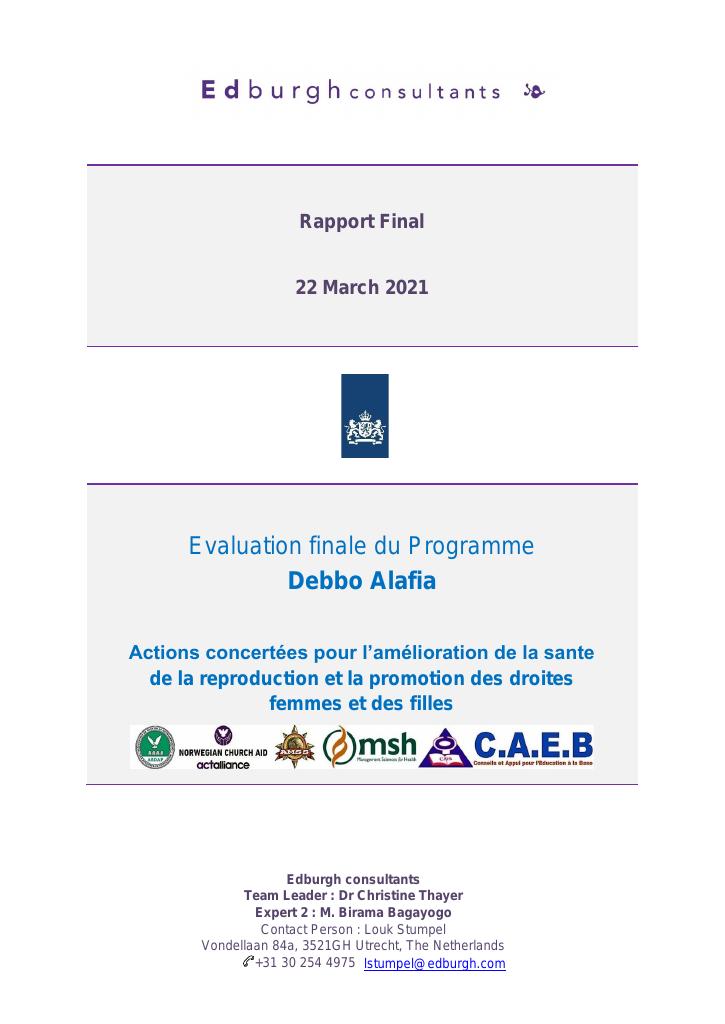Evaluering
Evaluation finale du Programme Debbo Alafia
Objective Inform the Malian and Dutch authorities on the use of the funds mobilized, Learn from the implementation of this phase, and if necessary propose changes in approach, in terms of relevance, effectiveness and efficiency. Method The qualitative approach made it possible to evaluate and analyze the evaluation questions (classic evaluation criteria) and to formulate recommendations for the second phase of the program. The quantitative approach made it possible to collect data through the administration of questionnaires developed for this purpose. Key Findings The program is in line with the concerns of the communities, the government and the decentralized territorial collectivities. Program stakeholders, in this case religious leaders, considered Debbo Alafia to be one of the few interventions that developed an approach involving religious people. The program positively influences women's attendance at health centers. The financing of the activities and initiatives of the partners is the major part of the direct costs of the Debbo Alafia program. Specific Recommendations Rethink the indicators which must be clearly defined and include a much more developed "quality" element, because indicators based solely on the quantity of production cannot, in certain cases, guarantee the impact of an approach. The indicators must be common for all the participating regions in order to produce reliable data for the assessment of the results of the implementation. Reflect on the possibilities of intervening in the prevention and care of HIV AIDS and fistula. Continue to promote consultation between organizations and in particular with regard to the monitoring-evaluation dimension of implementation.
